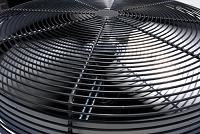Refrigerant huffing is a dangerous trend whereby people, primarily teenagers, tap into the refrigerant from your air conditioner to get high. The health hazards associated with refrigerant are many and serious, and besides being potentially deadly, it's also hard on your A/C system to lose refrigerant.

If your air conditioner isn't cooling as it should or your electric bills have risen, you can safely suspect that refrigerant huffing is the cause. The first step in determining if your pressure is low is to contact an HVAC professional who can measure the system's pressure. The technician will also check for leaks in the coils and connections, and if none are present, it's likely you're a victim of this dangerous practice.
The best way to protect your air conditioner is to have the technician install a locking safety cap on the valve of the outdoor condenser. With a locking cap in place, not only will you be protecting your A/C, you may be saving someone's life.
In the worst-case scenarios, if someone is huffing the refrigerant directly in your yard and you startle them, the adrenaline the body releases can cause immediate heart failure if refrigerant is in the bloodstream. Unless medical help is immediate, the abuser can die. Other side effects include long-term heart, lung and brain damage.
Your air conditioner also suffers. The compressor experiences more wear and tear when the refrigerant is low, and your electric bills increase. When enough gas has been lost, your A/C will quit altogether. If your system uses R-22, or Freon, which the majority of cooling systems do, it's a good idea to have an HVAC technician install the safety lock right away, since the price of R-22 is going to increase in the near future.
If you'd like more information about refrigerant huffing, contact Rodenhiser Plumbing, Heating & Air Conditioning. We've provided HVAC services for the Route 495/128 area of Norfolk MA for more than 80 years.
Our goal is to help educate our customers about energy and home comfort issues (specific to HVAC systems). For more information about air conditioners and other HVAC topics, download our free Home Comfort Solutions Guide.